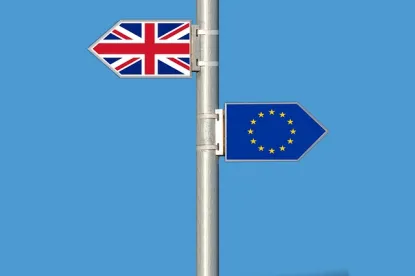As the political turmoil regarding Brexit continues to grow in the UK, the spectre of a “no-deal” Brexit becomes a very realistic scenario. The shortness of time left to make the final decision is forcing businesses in the UK and EU to view the short-term future with unease and anxiety, particularly the uncertainty surrounding the legal standing of UK firms operating in the EU countries. This also applies to UK undertakings that conduct their economic activity in Poland.
With regard to the financial market, the Polish Financial Supervision Authority (KNF) announced on 29 January 2019 that there would be no transition period for UK entities in case of no-deal Brexit (see our previous article on this issue).
This approach has been reversed by the Polish authorities, through the drafting a bill that provides for a set of provisions to facilitate the legal situation of such undertakings. The main goal of the law passed on 15 March 2019 is to grant additional time to the UK companies following a Brexit where there is no general treaty between UK and EU to regulate such a process.
The bill is titled “Law on the rules on doing business by some of the financial market entities with respect to the withdrawal of the United Kingdom of Great Britain and North Ireland from the European Union without concluding an agreement referred to in the Article 50 section 2 of the Treaty on European Union” (Polish Brexit Bill). It provides a transition period for the business operations of UK entities in Poland, starting from the date of a no-deal Brexit. This period will allows businesses to conducting any legal operations needed to close legal relationships entered into before the day of no-deal Brexit, or to establish a legal basis continuing to operate in Poland (i.e. by obtaining the correct permit). The Polish Brexit Bill names specific financial market business types and contains details on permitted and forbidden activities within the transition period. The length of the transition period differs depending on business type, but typically does not exceed 12-24 months.
For example, for UK banks that currently offer services in Poland through European law regulations, the Polish Brexit Bill would extend their entitlement to carry out the legal relationship based upon the credit agreements (within the permitted timeframe) until the expiration of such agreements. As mentioned above, the underlying principle of the bill is to give a chance of closing the business or legalise its business activity in Poland. The bank must not enter into new credit agreements, extend existing credits, increase the credit amount or make any changes to the credit agreements that would increase the bank’s risk arising from such agreements. The permission to continue the credit would be granted for the additional 24 months from the date of no-deal Brexit. Within this period, banks may also assign credit agreements to a financial institution allowed to operate in Poland, obtain a permit to operate in Poland as a branch of the foreign bank, or open a Polish bank according to the requirements of the applicable Polish law provisions.
The Polish Brexit Bill also provides similar regulations for other businesses within the scope of financial markets, i.e.:
- Insurance and reinsurance businesses
- Payment institutions
- Issuers of the electronic money or suppliers of said services
- Investment firms
- Business of direct or indirect participants to settlement system[1].
One of the substantial differences affecting business other than granting credits by the banks is the shorter timeframe, which is 12 months instead of 24 months. This shorter period applies to:
- Payment institutions
- Insurance agreements covering other than life insurance
- Investment firms
- Direct or indirect participants to the settlement system
The approach of the Polish authorities is intended to create a mechanism for UK entities to close their activities and allow them time to do this. This is different mechanism to the one applied, for example, in the German bill regarding no-deal Brexit – according to which, the German financial market supervision authority shall grant the extension of passporting rights resulting from EU laws. As a result, UK entities will be able to operate in Germany in the transition period. The Polish Brexit Bill seems to be stricter but creates a clear and transparent set of rules for the contingency of a no-deal Brexit, at least with regard to the time aspect of the transition period for the UK firms – the German bill leaves the final decision in this respect to the supervision authority. This body may decide to grant a shorter transition period for the purposes of closing the given kind of business in Germany (or legalise its business pursuant to German law provisions).
[1] In the meaning of Directive 98/26/EC on settlement finality in payment and securities settlement systems.





 />i
/>i

